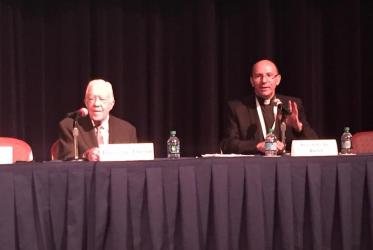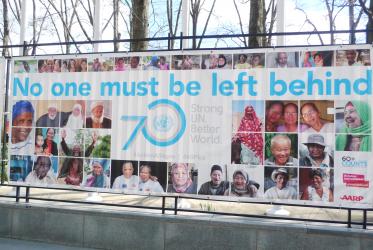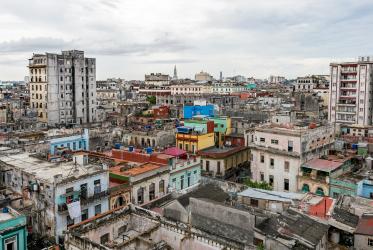Displaying 141 - 160 of 219
New Executive Committee members elected in Trondheim
28 June 2016
International affairs facilitator reflects on pilgrimage
31 March 2016
WCC hails historic visit of US leader to Cuba
23 March 2016
Religious leaders as agents of peace in the Americas
02 March 2016
Symposium focuses on religion, violence, extremism
04 February 2016
One refugee’s story: from Syria to France
07 January 2016









